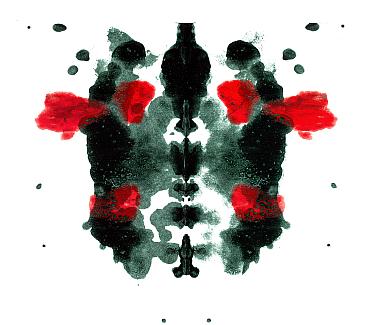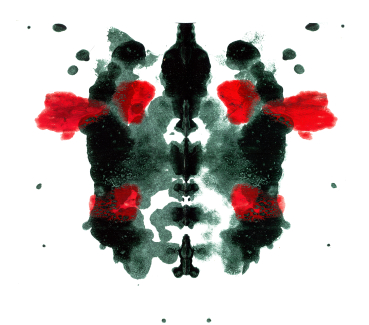The Markingson Files: Can a mentally ill patient consent to a clinical trial?

 Researchers in any clinical trial want to make sure participants have not been coerced in any way and that they are competent to make the choice to enter the trial. This is standard throughout academia, and most institutional review boards will not approve a project if clinical trial participants are not able to fully understand the risks and potential benefits of the trial and then make the choice to enroll.
Researchers in any clinical trial want to make sure participants have not been coerced in any way and that they are competent to make the choice to enter the trial. This is standard throughout academia, and most institutional review boards will not approve a project if clinical trial participants are not able to fully understand the risks and potential benefits of the trial and then make the choice to enroll.
This is what has vexed friends and family members of Dan Markingson, who was diagnosed with severe psychiatric disorders and then entered the CAFÉ study. Designed by AstraZeneca and researchers at the University of Minnesota, the study tested the efficacy of the antipsychotic drug Seroquel against its competitors. Markingson ended up killing himself in a brutal fashion.
As Carl Elliott, a University of Minnesota bioethicist and health writer, detailed in Mother Jones how, in the days leading up to Markingson's enrollment, everyone who examined him said he could not make his own medical decisions. Because of his psychosis, he repeatedly was judged incompetent. But on the day he was asked to consent to the clinical trial, he was judged competent.
The documents behind this period in the Markingson story raise serious questions not only about Markingson's competence but about how patients with mental disorders are judged competent in clinical trials all over the world. The documents were filed as part of a lawsuit against the University of Minnesota by Markingson's mother. Elliott, at Antidote's request, has posted them online and I will be linking to them in future posts.
On November 14, 2003, Dr. Stephen Olson from the University of Minnesota signed an "Examiner's Statement," which is used when committing someone to inpatient psychiatric treatment. The statement says that Markingson believed "he was involved in a Satanic cult that would meet in Duluth soon. He had been chosen to be ‘the One,' and would be asked to kill others for the greater good. He has threatened to kill his mother." At the end of the document, Olson recommended that Markingson be treated with neuroleptic (antipsychotic) medication, and he noted that Markingson lacked the capacity to make decisions regarding such treatment because he "does not believe has a mental illness."
Three days later, on November 17, 2003 a screening team of health professionals also recommended involuntary commitment for Markingson. The team also noted in its report to the court as part of the process of committing him that Markingson had a plan to kill people and said that he thought Angelina Jolie was his sister. Just as Olson had done, the team said that he "did not believe that he had a mental illness."
The Report of the Pre-Petition Screening Team can be found here.
The court took Olson and the screening team seriously. On November 19, 2003, a court-appointed clinical psychologist, James L. Jacobson, filed an Examiner's Report on Markingson. To the question, "Is there a substantial disorder of thought, mood, perception, orientation, memory?" Jacobson replied "Yes." Jacobson also noted that Markingson "is believed not to have the capacity to make decisions regarding neuroleptic medication."
So what did this all add up to? Three different health professionals, including the doctor who had been treating Markingson, ruled that Markingson was not fit to make decisions about his own health, in part because he could not even recognize that he had a mental health problem.
Yet, on November 20, 2003, Olson changed course and asked the court to temporarily suspend the involuntary commitment of Markingson. The next day, Markingson enrolled in the CAFÉ study, of which Olson was one of the lead researchers. When Markingson was asked to give his consent, the CAFÉ study coordinator, a social worker named Jeanne Kenney, judged him competent to consent in her Evaluation to Sign Consent Form.
Elliott has written for the Bioethics Forum that Kenney should not have been allowed to make this call.
First, the final competence assessment was made not by an independent party, but by the study coordinator for the CAFÉ study, Jean Kenney, whose job it was to recruit subjects for the study. This is hardly an impartial, disinterested assessment. Second, Kenney was a social worker, not a psychiatrist or psychologist trained to make competence assessments. Third, even after Mr. Markingson had been judged competent to consent to the CAFÉ study, his involuntary commitment order was not lifted. This suggests that his mental state had not changed quite so dramatically. And finally, one of the most persistent features of Markingson's psychosis was a lack of insight into his condition. Markingson did not believe he had a mental illness. How could he be competent to consent to a study comparing treatments for his mental illness when he would not even acknowledge that he was mentally ill?
Next: When does encouragement to join a clinical trial become coercion?
See all the posts in "The Markingson Files" series.
Other Related Posts:
Q&A with Dr. Carl Elliott, Part 1: Making patient protection a priority for clinical trials
Q&A with Dr. Carl Elliott, Part 2: Finding fault with his own university after patient's death
Photo credit: Rorschach Test/istockphoto

